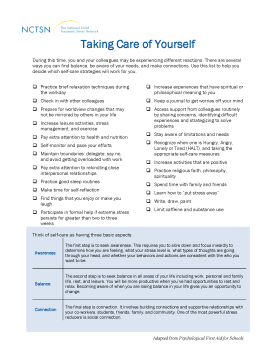
Taking Care of Yourself
Offers providers a list of ideas for self-care strategies to use after a difficult event. This checklist outlines the three basics aspects of self-care including awareness, balance, and connection.
The following resources on Secondary Traumatic Stress were developed by the NCTSN.

Offers providers a list of ideas for self-care strategies to use after a difficult event. This checklist outlines the three basics aspects of self-care including awareness, balance, and connection.
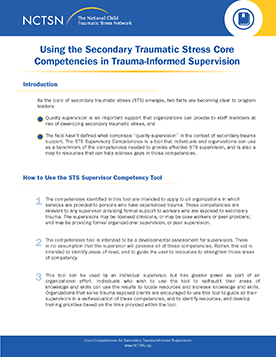
Discusses the importance of quality supervision that organizations can provide to staff members at risk for secondary traumatic stress (STS).
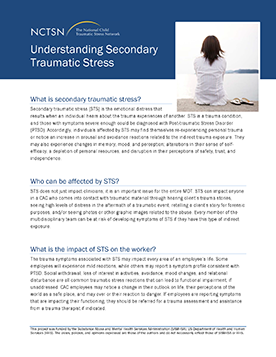
Offers fundamental information about secondary traumatic stress (STS). This fact sheet gives CAC workers guidance on understanding STS, who is impacted, and what CACs can do to address it.
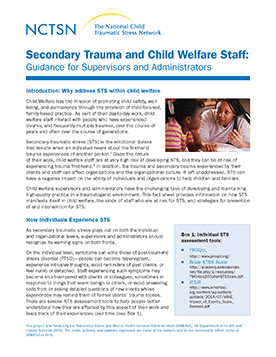
Gives supervisors and administrators in the child welfare system the information on the importance of addressing secondary traumatic stress (STS).
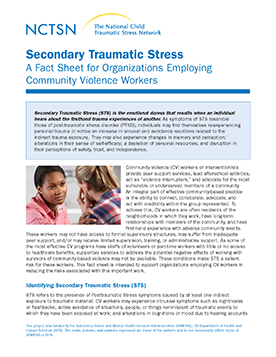
Provides community violence workers with information about secondary traumatic stress (STS).
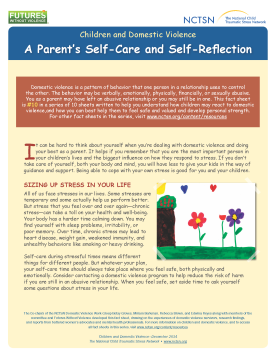
Provides ideas about self-care for parents impacted by domestic violence. This fact sheet points out how stress can affect parents and provides suggestions on how to deal with that stress.
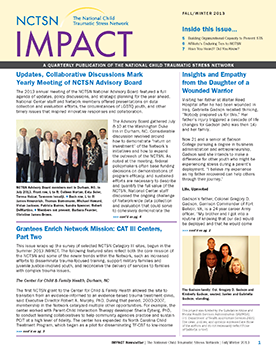
Highlights the face-to-face NCTSN Advisory Board meeting, showcases a few of our Category III sites and the outstanding work they are doing in their centers, and discusses the impact deployment has had on one Network family, as well as other stories.
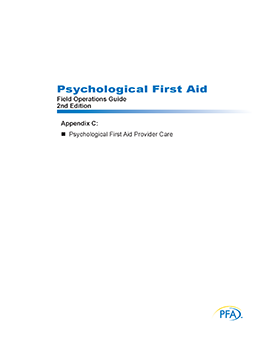
Is the third appendix in the Psychological First Aid First Operations Guide (PFA). This appendix offers information on PFA provider care.
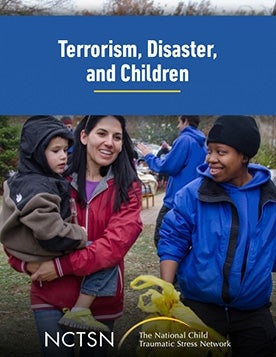
Discusses the distinction between spirituality and religion, as well as the consequences trauma has on spirituality. This webinar addresses the signs and symptoms of a moral injury and the importance of self-care for mental health providers.
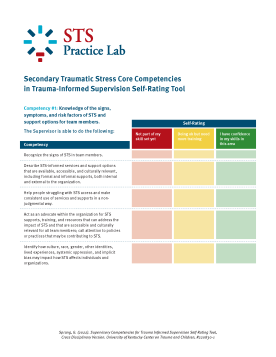
Is a self-rating tool that walks users through each of the competencies in STS cross-disciplinary version.
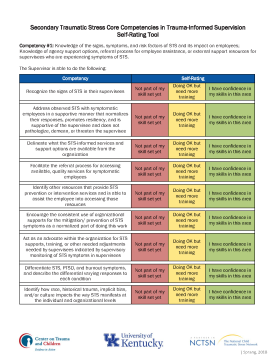
Is a self-rating tool that walks users through each of the competencies in Using the Secondary Traumatic Stress Core Competencies in Trauma-Informed Supervision.
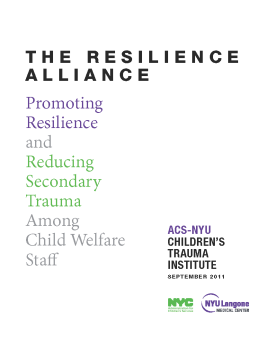
Is designed to mitigate secondary trauma symptoms experienced by child welfare staff, and secondary trauma’s impact on unit and agency functioning.